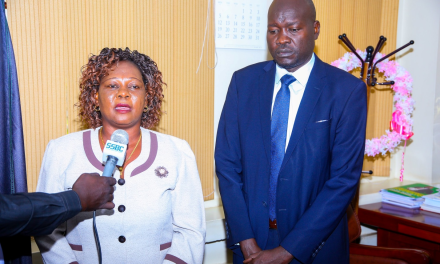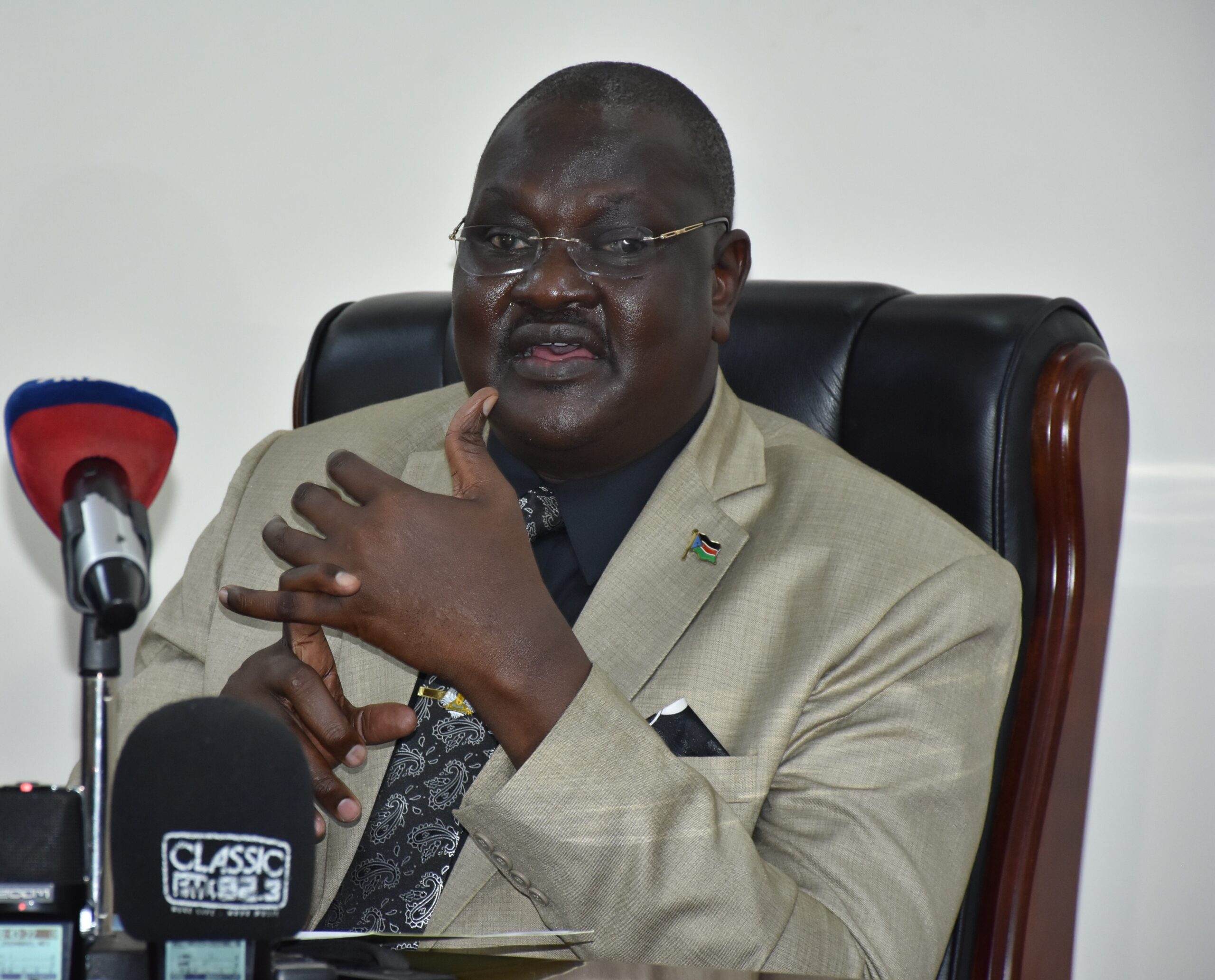
Youth inspired to learn space technology after sharing experience with Chinese astronauts

South Sudanese youth are aiming to enroll for studies in space science and technology after sharing experiences and learning from the Chinese astronauts.
The Chinese embassy in South Sudan on Wednesday held an event on “Shared Space—China-Africa Dreams” where African youths including South Sudanese youths interacted by video connections with Chinese astronauts in the Tiangong Space Station.
Mayen Kuol, an artist and overall winner of the “Human Community with a Shared Future” thematic writing contest, said that South Sudan can benefit a lot if some of it’s youth enroll for studies in space technology.
“We have a lot of young children who aspire to be astronauts but they don’t have the support, if we get support from our people then I am sure in the near future South Sudan can have a brighter future in the space industry,” Kuol told The Juba Echo in Juba.
“Right now we may not be in need of satellite technology but in the future we must need it, because let’s say the issue of inter-communal violence, the government using satellite technology would be able to locate the epicenter of fighting and immediately deploy troops,” he added.
Kuol’s work that won him the prize was based on a 10 year-old South Sudanese boy dreaming to be an astronaut in years to come, but this dream is not realized due to the challenging environment he lives in.

Chinese Ambassador Ma Qiang (Middle) together with Mayen Kuol (Right) the first winner of the “Human Community with a Shared Future” thematic writing contest at the Chinese embassy in Juba.
Gatwech Kuol Nyuon, the secretary general of the government of Jonglei state in South Sudan and second winner of the “Human Community with a Shared Future” thematic writing contest, said he has come to realize how space science and technology could contribute and impact a human shared value in a very positive way.
“Currently South Sudan is suffering from climate change, last week our President joined his African counterparts in Nairobi and when you see Ethiopia our neighbor they have satellite that sends information on climate and agriculture the same thing to Egypt,” Nyuon said.
“We lack satellite technology to give us reliable information to deal with climate change, I think the experience with Chinese astronauts has demonstrated to us how technology can positively contribute to South Sudan as a country,” he disclosed.
Another winner of the “Human Community with a Shared Future” thematic writing contest Amaju Ubur Yalamoi, said South Sudanese should start taking seriously space science and technology after three astronauts aboard China’s Shenzhou-16 spaceship entered the country’s space station in May this year.
“China is already helping South Sudanese to go and study in China in various field, I think South Sudanese should also be more serious on how they take the space program and this is where China will help,” Yalamoi said.
“We will also need to share our experiences with Chinese like what their astronauts have done today, they have shared their experiences and I think there is a lot to learn from them and as young people of South Sudan we can emulate what China has achieved in space,” he added.
Ma Qiang, Chinese Ambassador to South Sudan said the Chinese Embassy is supporting University of Juba in establishing the Chinese culture center and is continuously providing scholarships and training opportunities to South Sudanese students.
“Similar to that work we have done, the purpose of this event “Shared Space—China-Africa Dreams” as well as “My Dream” Painting Competition and “Human Community with a Shared Future” thematic writing contest, is to inspire the South Sudanese youth to raise your heads to appreciate the starry sky, to establish lofty ideals, to actively think about how this nation could achieve development and stand on its own feet, and to shoulder the responsibility to seek for the human progress and the common future of human society,” Ma said.




































